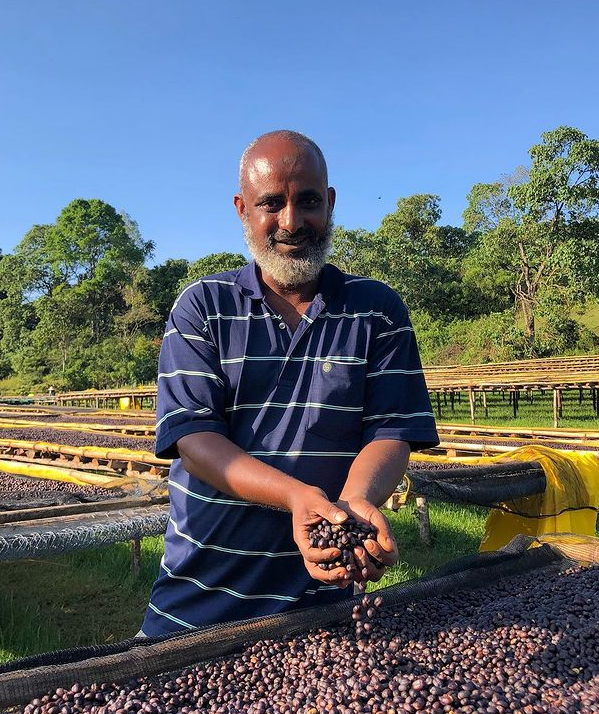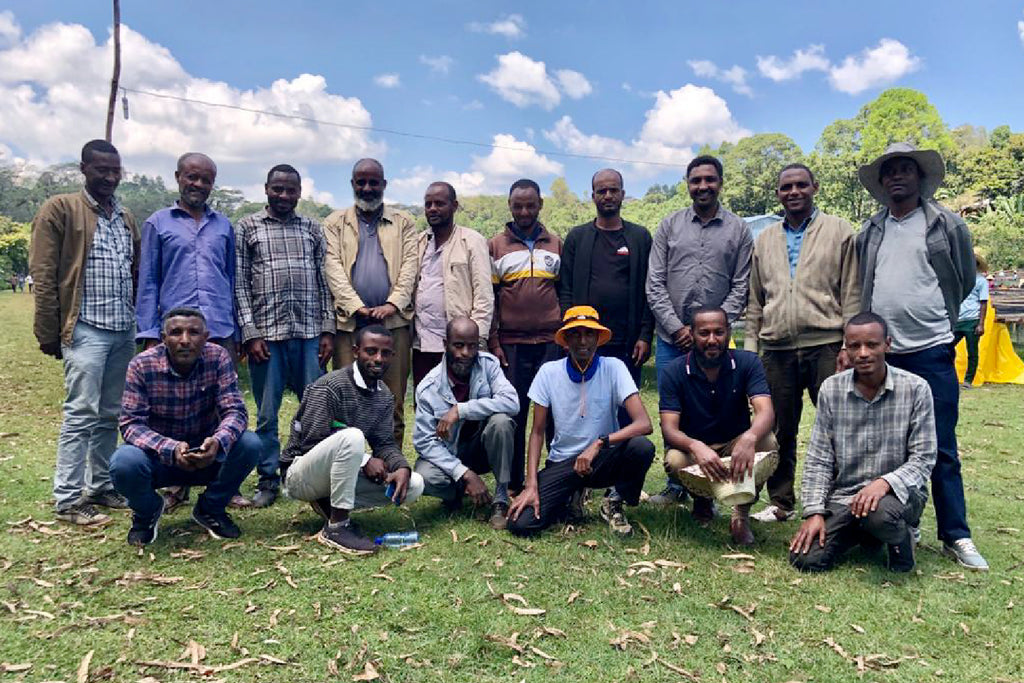Beyond Yirgacheffe: Exploring Jimma’s New Coffee Frontier
In the heart of Ethiopia’s Jimma Zone, a region long overshadowed by the likes of Yirgacheffe and Sidamo, a quiet revolution is brewing - led by producers like Mensur Abahika and Nesru Aba Nura. This husband-and-wife duo are part of a new generation of Ethiopian coffee farmers who are not only producing exceptional coffees but also reshaping how those coffees reach the world.
From Aggregation to Attribution
Historically, most Ethiopian coffees were sold through cooperatives or regional washing stations, making it difficult to trace a coffee back to a single farm. But recent regulatory changes have allowed producers to export under their own names, opening the door to traceability, transparency, and recognition for individual excellence.
Mensur owns an 18-hectare farm in the Gomma district of Jimma, where he produces natural-processed coffees - a rarity in a region traditionally known for washed Limu profiles. His meticulous approach to drying and sorting has helped redefine what’s possible for naturals from this part of Ethiopia. Mensur is also a founding member of the Tokuma Farmers Group, a collective of smallholders in Western Ethiopia committed to improving quality through shared knowledge and direct trade.
The Tokuma Farmers Group: A Model for Transparent Trade
Mensur is a founding member of the Tokuma Farmers Group, a collective of smallholder producers based in the Agaro region of Jimma, operating at altitudes between 1,950 and 2,200 metres above sea level. The group benefits from fertile soils, temperate climate, and the biodiversity of surrounding forests that provide natural shade and ecological balance.
Originally formed to share agronomic practices and marketing strategies, Tokuma has evolved into a pioneering force in Ethiopia’s coffee sector. The group is part of a broader movement away from the traditional Ethiopian Commodity Exchange (ECX) model, which historically obscured traceability by aggregating lots from multiple producers. Thanks to recent legal reforms, Tokuma farmers now maintain full ownership of their coffee from cultivation to export, allowing for lot-level traceability and direct trade relationships.
Key values of the Tokuma Farmers Group include:
- Farmer Ownership: Each member retains control over their coffee throughout the supply chain.
- Traceability: Every lot can be traced back to the specific farm and harvest date.
- Quality Focus: Members oversee every stage, from picking to drying, to ensure export-grade quality.
- Community Development: Profits from direct trade are reinvested into farm expansion, job creation, and local infrastructure.
Over the past three years, the group has seen measurable improvements in both cup quality and supply chain efficiency, including more consistent delivery to port and better post-harvest handling.
Nesru Aba Nura: A Producer in Her Own Right
While Mensur’s name may be more widely known, Nesru Aba Nura is quickly establishing her own reputation. Her 9-hectare farm in Kota Kebele, Jimma, sits at an altitude of 1,950–2,000 metres above sea level - ideal conditions for slow cherry maturation and complex development.
Now in her second harvest, Nesru’s coffees are dried on raised beds for an average of 21 days, a method that ensures even drying and preserves the integrity of the cherry. Her work is a testament to the growing role of women in Ethiopian coffee production and the increasing diversity of voices shaping the industry.
How Jimma Coffee Stands Apart
While regions like Yirgacheffe and Sidamo have long dominated the conversation around Ethiopian coffee, Jimma is increasingly being recognised for its unique contributions:
-
Geography & Elevation: Jimma’s highlands range from 1,400 to 2,200 masl, with many farms located in forested or semi-forest environments. This contrasts with the more densely cultivated, garden-style farms of Yirgacheffe and Sidamo.
-
Processing Traditions: Jimma has historically produced washed Limu coffees, but is now gaining attention for high-quality naturals, thanks to producers like Mensur. In contrast, Yirgacheffe and Sidamo are known for their washed coffees with floral and citrus-forward profiles.
-
Market Recognition: Unlike the trademarked regions of Yirgacheffe and Sidamo, Jimma has not enjoyed the same level of branding—though this is changing with the rise of single-producer exports and farmer-led groups like Tokuma.
-
Genetic Diversity: Jimma is home to the Jimma Agricultural Research Centre (JARC), which has developed many of Ethiopia’s most widely planted cultivars. This gives the region a unique role in Ethiopia’s coffee genetics, with many farms growing selected JARC varieties like 74110 and 74112, prized for their disease resistance and cup quality.





